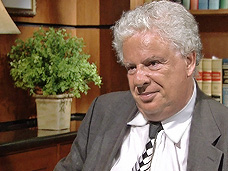
Martin Sieff
Martin Sieff is a Senior Fellow of the American University in Moscow and former Managing Editor, International Affairs at United Press International. He is the author of Cycles of Change: The Three Great Cycles of American History and the Coming Crises That Will Lead to the Fourth (2015) available from www.martinsieff.com
"People don’t realize,”a wise friend of mine said during the passionate rush of the George W. Bush administration to invade Iraq in 2003, "if you push too hard at the Universe, the Universe will push right back.”
Right now, the Universe has started to push back at 12 years of reckless US policies, invasions and sweeping efforts to remake entire nations across the Middle East.
This is not a new story: In fact it is a very old one.
In 1919, then US President Woodrow Wilson crossed the Atlantic Ocean with a brains trust of eager and arrogant young policymakers, including future Washington Post pundit Walter Lippmann to remake the ancient borders of Europe in the name of national self-determination– and he did.
"National self-determination” was Wilson’s version of what the great Russian novelist Leo Tolstoy called "the Green Stick” –the one simple, magic secret that will transform the world and bring instant human happiness to everyone.
Eighty four years later, George W. Bush, his Vice President Dick Cheney and Defense Secretary Donald Rumsfeld had a new magical Green Stick called "democracy and human rights.” This time they were determined to remake the Middle East with it.
First they conquered Iraq, using fraudulent intelligence about its alleged weapons of mass destruction as their justification. Then they abolished the Iraqi army and imposed democracy – US-style on the country.
Of course what they really created was a hellish chaos – an anarchy in which Sunni and Shi’a were pitted against each other and the previously dominant Sunni communities were smashed and isolated. Many of their members in despair eventually turned to Islamic extremists.
The succeeding administration of current US President Barack Obama should have learned the lesson, but they didn’t. Neoconservative arrogance and recklessness was replaced by more of the same -- from neo-liberals. But it was the same Green Stick and the same old story.
During the heady days of the Arab Spring in 2011, Obama allowed the Central Intelligence Agency and the Pentagon to funnel funds and aid to topple the autocratic, beleaguered government of Bashar Assad in Syria. Syria was going to get the full Green Stick treatment.
Except, as the whole world now knows – it didn’t work. Assad proved a tougher nut to crack than Muammar Qadhafi in Libya. And the American people’s taste for fully occupying countries when Washington armchair strategists told them to had been drained dry by the ever-rising casualty figures from Iraq and Afghanistan.
Now the wheel has turned full circle. Four years of US efforts to produce an idyllic "secular, democratic, pluralistic, tolerant” Green Stick society in Syria have instead unleashed a ferocious medieval-style jihad, uprooted 11 million terrified people from their homes and driven millions of refugees into neighboring Jordan and Saudi Arabia and even across the nations of the European Union.
Now it is Russia that is intervening in Syria to fight the jihadists. But where the United States disbanded the old Ba’athist Army in Iraq and smashed the old state structure there, Russian President Vladimir Putin, with no delusions about creating any utopia or shining example to the world, is supporting the Ba’athist army of Damascus. No Green Stick for him.
The initial success of Russian air strikes against Islamist forces, including some supported by the United States has clearly impressed the leaders of Iraq, Saudi Arabia and Jordan. All three nations, close to the United States for generations, are now rapidly boosting their diplomatic and security ties with Moscow.
America’s Green Stick policy of the past 12 years is now spreading chaos and fear through Europe as well as the Middle East. Everything is turning out the opposite of what it was supposed to be.
The 18th century English poet William Blake coined a phrase to describe this kind of ironic blowback. It is "fearful symmetry.”



_jpg/250px-ElbeDay1945_(NARA_ww2-121).jpg)





